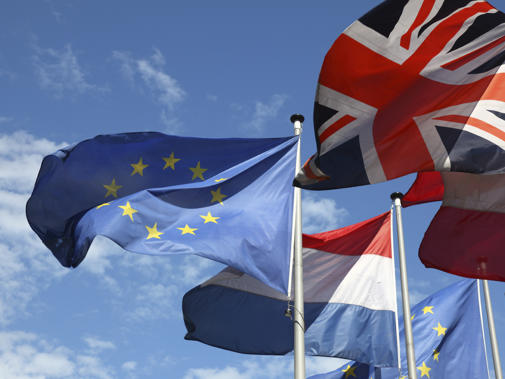‘There is no plan for no deal because we are going to get a great deal.’
Such was the ebullient retort of the then foreign secretary Boris Johnson in July 2017 when questioned in the Commons about what contingency preparations his government was taking in its efforts to leave the EU.
Fast-forward three years and the prospect of no deal is not only still alive but arguably more of a possibility than at any time since 23 June 2016.
Now prime minister, Mr Johnson’s government has this month introduced the internal markets bill – a prospective piece of legislation that would allow the UK to override the legally binding commitments contained in the Brexit withdrawal agreement.
On top of this, the prime minister has warned that, unless a trade agreement is concluded by 15 October, the UK will walk away from further negotiations with Europe.
Across the pond
The impending prospect of no deal holds many implications for the UK, and further intensifies the need for bi-lateral trade arrangements with other countries to be struck, with the USA understandably a prime target.
A trade deal with the USA has, however, long been a source of concern for doctors and those who care about the future of the health service, despite the Government repeatedly promising that the NHS will be ‘off the table’.
Speaking at the annual representative meeting on 15 September, Swindon specialty trainee 4 gastroenterology Giovanna Sheiybani warned that, as a member of the EU, the NHS had been protected by agreements designed to safeguard pharmaceutical regulation and ensure high safety standards.
She said it was essential doctors and the BMA continued to press Westminster on ensuring it did not compromise on healthcare to secure a trade deal more speedily.
‘As a no-deal Brexit becomes a likely possibility, the UK becomes ever more dependent on independent international trade agreements with countries such as the USA,’ she said.
‘Even before Brexit, the UK was coming under pressure to open its health market and change regulation in ways that could negatively impact healthcare. Worryingly, these demands have intensified since the launch of formal trade negotiations.
‘One area of serious concern is the potential impact on drug pricing here in the UK. The UK’s price-control mechanisms are extremely effective at containing the cost that the NHS pays for medicines.
‘The impact of this could be significant and long-lasting for the NHS.
‘We could lose protection from higher drug prices, leading to billions of pounds being spent on commonly used medications including inhalers and diabetes medications. This can also limit NHS spending power in other areas, through severely constraining budgets and expenditure.
‘Drug choices could be limited, limiting UK doctors from providing the best possible treatments. Less robust testing and lax regulation of pharmaceuticals, medical technologies and devices could also result from a trade agreement affecting NHS quality and safety standards.’
Drug pricing
 WRIGLEY: 'These trade deals mustn't be used to lower standards'
WRIGLEY: 'These trade deals mustn't be used to lower standards'
Contributing to the debate, BMA deputy council chair David Wrigley said the association had been lobbying extensively on the trade bill being reviewed in the Lords.
He emphasised that US negotiators had made no secret of the fact they wished to see the existing limitations on drug pricing removed as part of any broader trade agreement between the two countries.
‘The UK spends two-and-a-half times less per capita on medications compared to the USA, and this amounts to around £12bn. The USA has made it clear it considers lower prices in the UK unfair and has made it an explicit target in its trade negotiations,’ he says.
‘These trade deals mustn’t be used as a vehicle to lower standards and increase costs to the NHS.’
The internal market bill, which sets out the rules under which all four nations of the UK would trade under once the transition period comes to an end, could increase the risk of a no-deal Brexit by undermining the withdrawal agreement by empowering the UK to rewrite parts of the Northern Ireland protocol.
The BMA has raised its concerns with MPs on how a no-deal Brexit would affect members and health and social care more widely, as well as stressing the need for the bill to ensure there is not a ‘race to the bottom’ on standards.
Uncertain times
Meanwhile the trade bill, which provides a legal framework for the UK to trade independently when the Brexit transition period comes to an end, has seen the BMA call for health and social care sectors to be excluded from the scope of any trade deal.
In successfully calling for the BMA to ensure any trade agreement does not result in rising drug costs or a weakening of the NHS’s ability to negotiate pricing with US pharmaceutical firms or an adverse effect on the safety and regulation of drugs and medical devices, Dr Sheiybani warned doctors could not afford to be complacent.
‘There is a lot of uncertainty around what a trade deal with the USA could mean. Although the Government has said the NHS is not on the table, we are greatly concerned about any negotiations carried out without proper scrutiny and appropriate protections, could lead to concessions being made which prioritise economic gain over health,’ she said.
‘The BMA needs to act to ensure any future trade deal does not result in a rise in UK drug prices, does not weaken the NHS’s ability to negotiate drug prices and does not put at risk the safety of medicines in the UK.’

